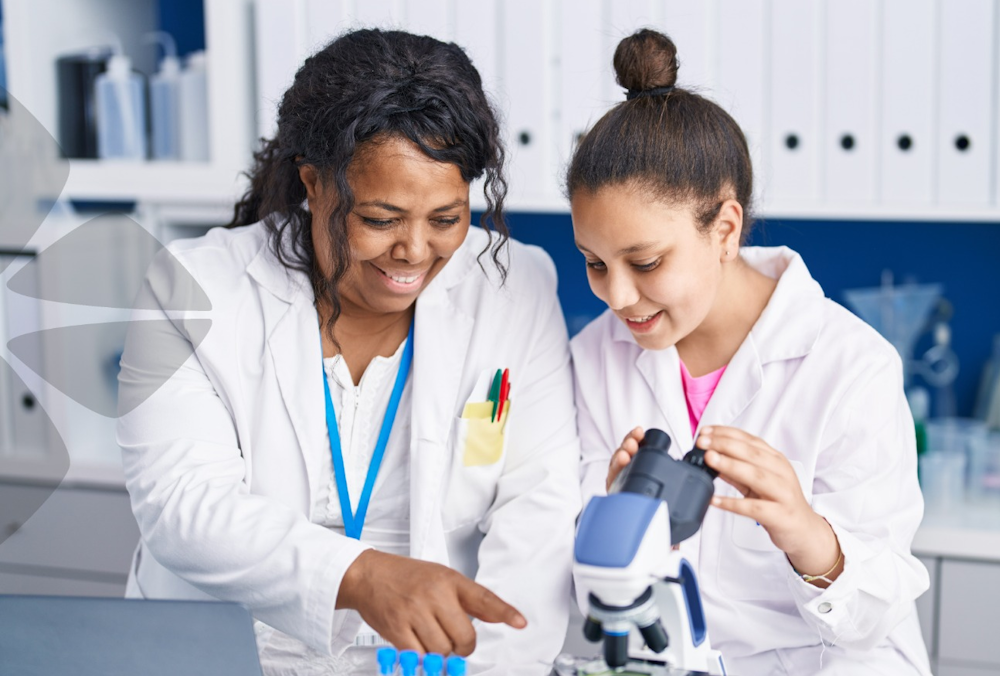*By Viviane Silva, CSO of InEdita Bio
There are many paths a person can choose in life. One of the paths that moves me the most is the one followed by example. Mine came from my childhood. My passion for science and biotechnology began with the enthusiasm of my teachers in these subjects, who always encouraged their students with thought-provoking questions. Science fair events were fascinating challenges that sparked the desire to research and understand the processes that govern life, requiring dedication and creativity while still in school. I grew up hearing about great projects from the 1990s, such as the Human Genome and the cloning of Dolly the sheep – two scientific milestones that opened countless doors for modern science.
The younger generations also have good sources of inspiration. In 2023, four of the eleven Nobel Prize winners were women (the same number also occurred in 2008 and 2020). In 2023, biochemist Katalin Karikó became the 13th woman in history to win a Nobel Prize in Medicine. The number of female scientists who have won the Nobel Prize is still low, but their studies have had a huge impact, such as Karikó’s discoveries that enabled the development of effective RNA vaccines against COVID-19.
I like to use Karikó as an example because her career has been long and unpredictable. She began her scientific career in Hungary, moved to the United States in the late 1980s, and, in addition to her tireless experiments, faced countless difficulties in obtaining funding and acceptance for her research. Today, in addition to being a laureate, she is a professor in Hungary and the United States and holds a leadership position at the German biotechnology company BioNTech.
Her story is inspiring because it reinforces the importance of not losing faith in what we are striving for. A research project initiated by a young scientist can lead to a life-changing discovery – and in Karikó’s case, it has saved millions of lives.
Therefore, encouraging female participation in areas of innovation and technology is essential both quantitatively and qualitatively. With more women in these sectors, perspectives expand and new ways of building solutions emerge. The low presence of women in science reduces our ability to advance. In terms of quality, diversity is an essential factor for the advancement of knowledge.
But there is still a long way to go. Data from the World Intellectual Property Organization shows that gender equality in international patent applications is growing, but at a very slow pace. If we maintain this pace, parity would only be achieved in 2061. Women remain a minority in several careers, such as engineering and computer science – precisely the areas that concentrate the majority of inventors and professionals responsible for innovation.
However, there is good news. At least in Latin America, in the life sciences area, there is a strong engagement of women in patenting activities. In addition, initiatives in Brazil and around the world, led by women, have been strengthening the female presence in innovative entrepreneurship and in the protection of intellectual property. This is promising, as it allows new generations of girls to see themselves represented and consider science as a career option.
We, Brazilian scientists, are internationally recognized, we lead biotechnology companies and we make important discoveries. We are researchers, university professors, entrepreneurs and mothers, all at the same time. What we need is more encouragement and opportunities.
Viewed using Just Rea



